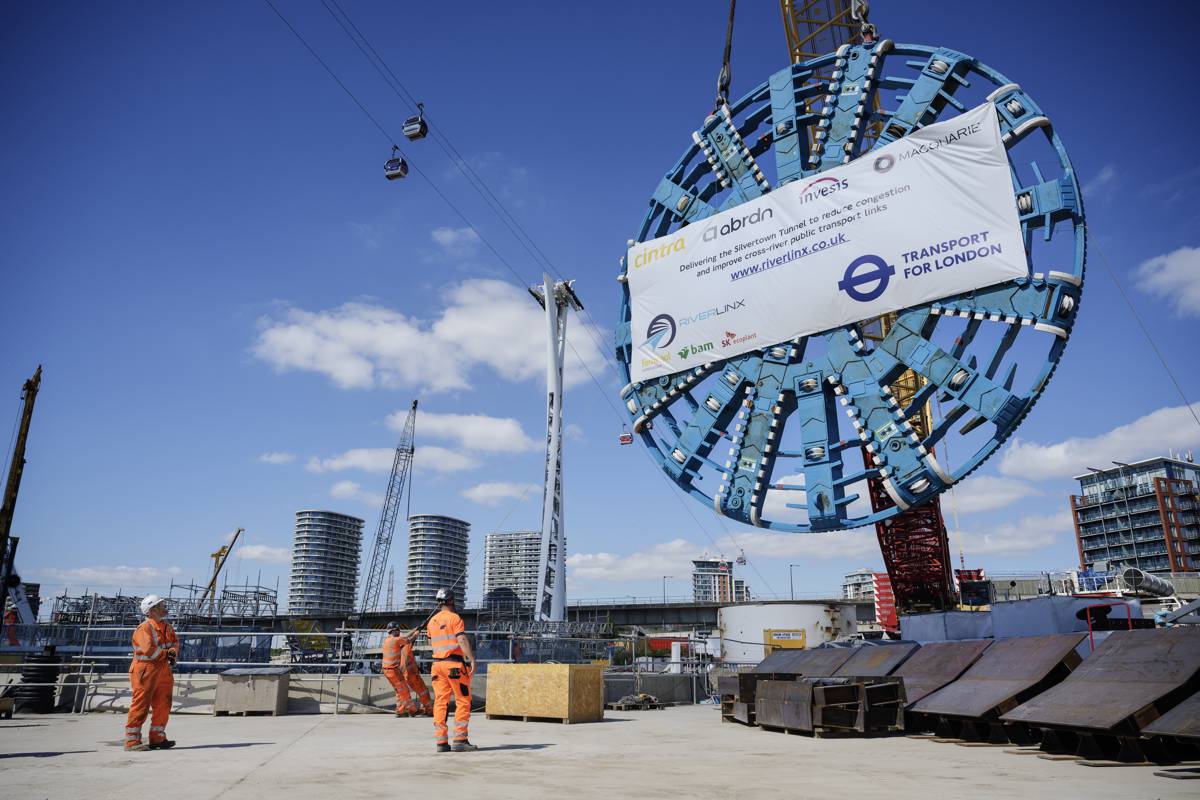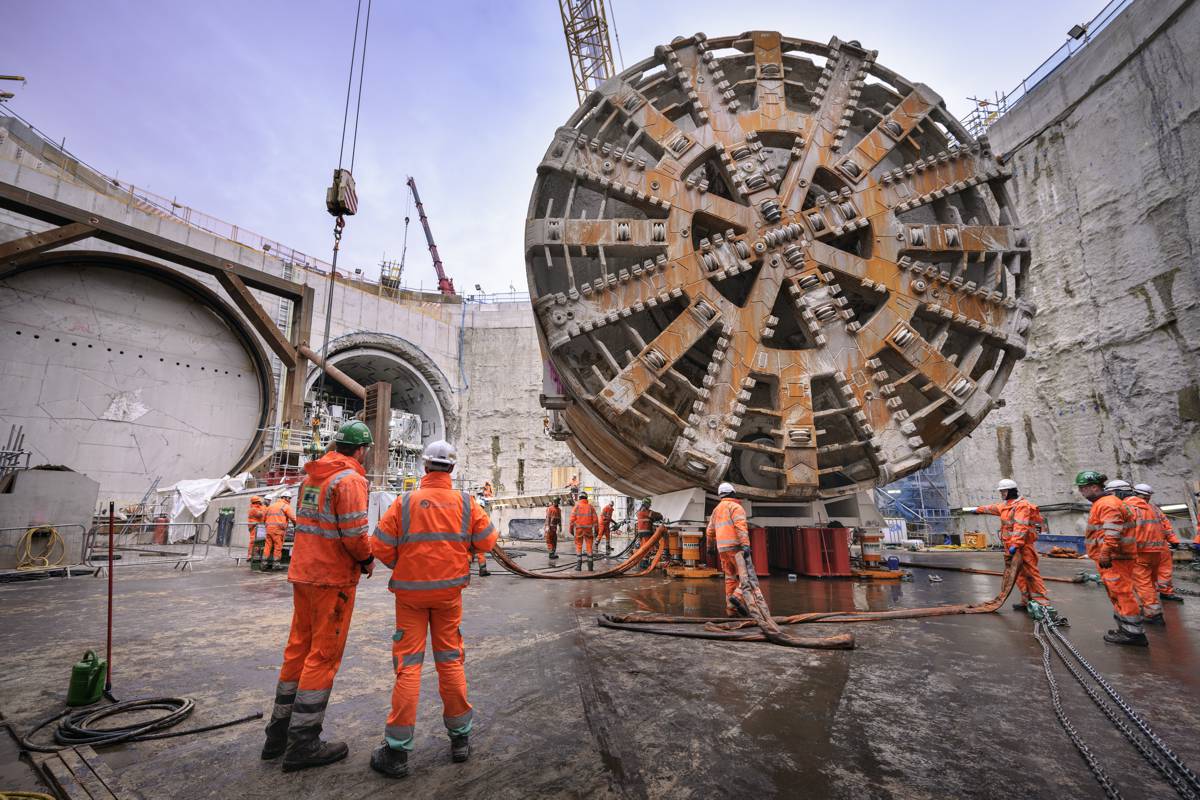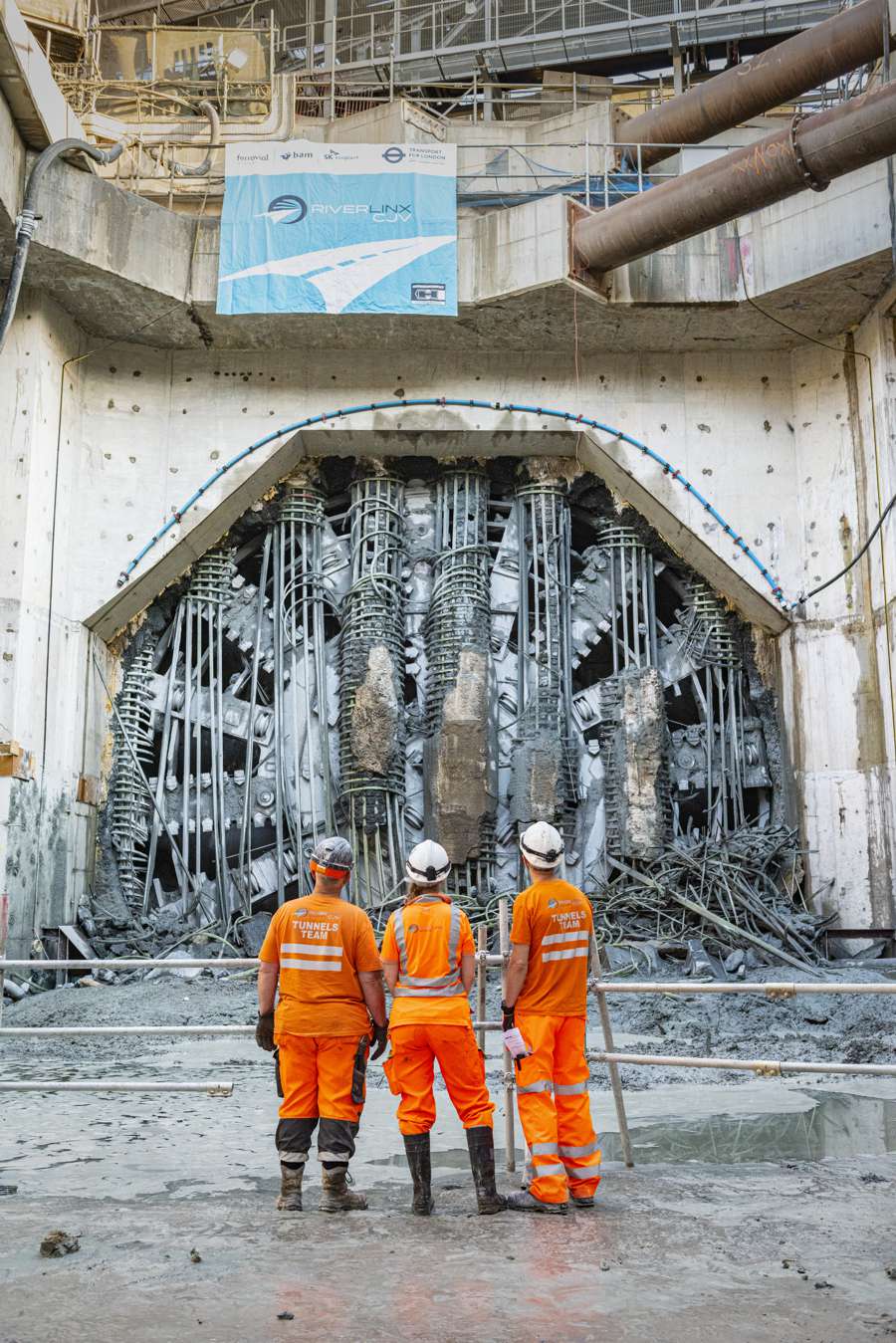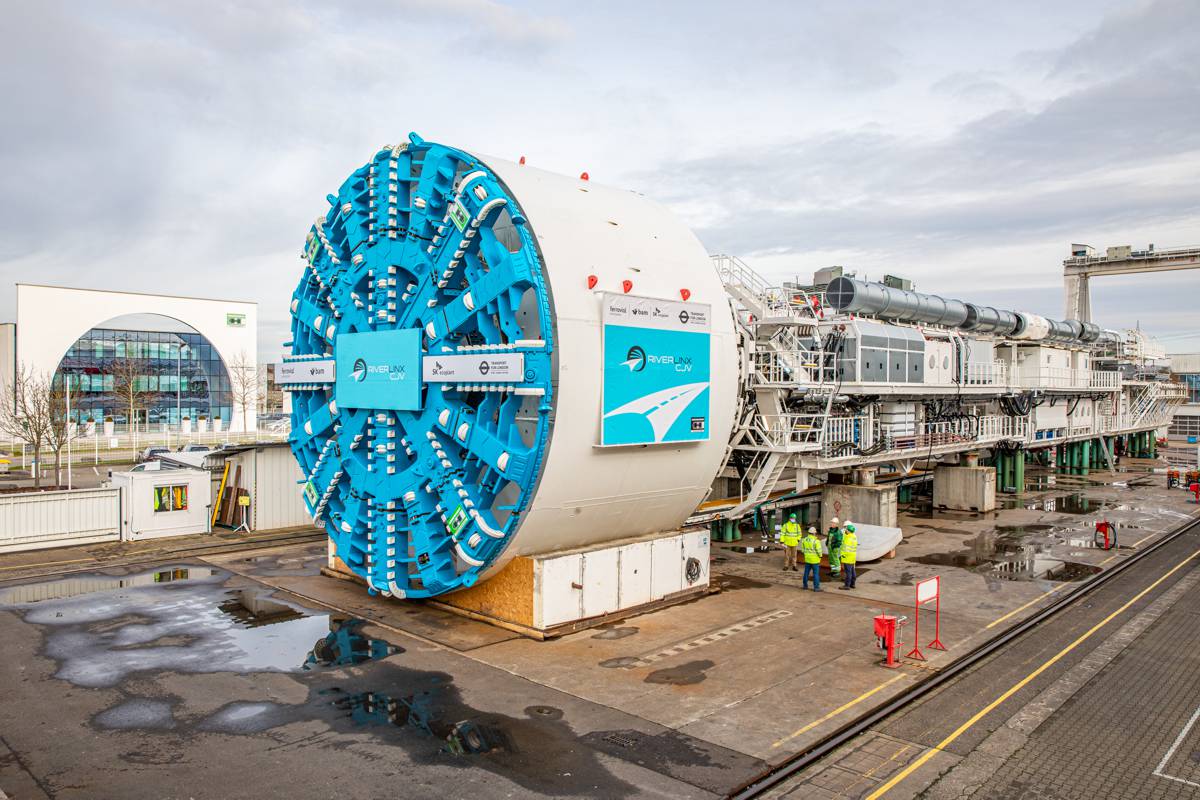Herrenknecht breaks through 1.4km Silvertown Tunnel
Tunnelling at the Silvertown project in London on track for success: using the largest tunnel boring machine (TBM) in the UK, miners from Riverlinx CJV completed tunnelling for the second tunnel ahead of schedule.
Previously, after the first tunnel had been driven, experts from manufacturer Herrenknecht had turned the entire machine around in an unusual procedure on nitrogen–filled cushions.
To counter chronic congestion in the Blackwall Tunnel, which dates back to Victorian times, London is building the Silvertown Tunnel in the east of the city, the first newly constructed underground road link between the two banks of the Thames in over 30 years. Over a total length of 1.4 kilometres, two lanes run through each side of the tunnel. The diameter of the tunnel boring machine (TBM) of the EPB Shield type (Earth Pressure Balance Shield) designed and supplied by Herrenknecht is correspondingly large.
The TBM, christened “Jill” by the miners, is the largest ever used in the UK: the shield diameter is almost 12 meters. Including the gantries, the machine weighs 1,800 tonnes and is 82 meters long. By the time work was completed on July 23, 2023, “Jill” had installed 1,120 segmental rings, each weighing around 70 tonnes, to line the tunnel.
The contracting joint venture Riverlinx CJV thus completed the tunnelling with the highest precision and within less than one year. Breakthrough of the southbound tunnel took place in mid–February 2023 already.

180 degree turn with a 1,450 tonne machine
When building twin–tube tunnels, usually either two TBMs are used or a single TBM is dismantled and returned to the original launch site for the second drive. However, due to the highly complex underlying conditions in terms of construction technology, time and finances, the project managers opted for a different, innovative approach for the Silvertown Tunnel: after completion of the first tunnel, the entire machine was rotated by 180 degrees in order to subsequently bore the northbound tunnel. To this end, the tunnellers specially excavated an 18 meter deep and 40 meter long shaft that was open at the top.
In fact, turning such a huge machine required a special procedure developed by Herrenknecht: the shield machine and the cutting wheel are placed on a kind of sled.
This in turn slides on cushions filled with compressed nitrogen so that with the help of pneumatic chain hoists the machine can be turned precisely and brought into the new position. The method had already been successfully used in Paris and on the new Stuttgart–Ulm railway line. The 180 degree turn of the 1,450 tonne shield machine in London was accomplished by the Herrenknecht specialists in a single day.

Strong partners
Behind the new Silvertown Tunnel is Transport for London, the institution responsible for road, rail and public transport in the British capital. It awarded the contract for the design, construction, financing and operation of the project to the Riverlinx CJV (Construction Joint Venture) in November 2019.
The joint venture comprises Ferrovial Agroman, BAM Nuttall Ltd and SK Engineering & Construction Ltd.

Project Data Silvertown Tunnel
- Client: Transport for London
- Contractor: Riverlinx CJV (Ferrovial Agroman, BAM Nuttall Ltd and SK Engineering & Construction Ltd)
- Application: road
- Drive length: 1,085 m + 1,115 m
- Geology: heterogeneous soil: alluvium, clay, sand and gravel
Machine Data
- Machine type: EPB Shield
- Shield diameter: 11,870 mm
- Drive power: 5,600 kW
- Torque: 31,093 kNm





























